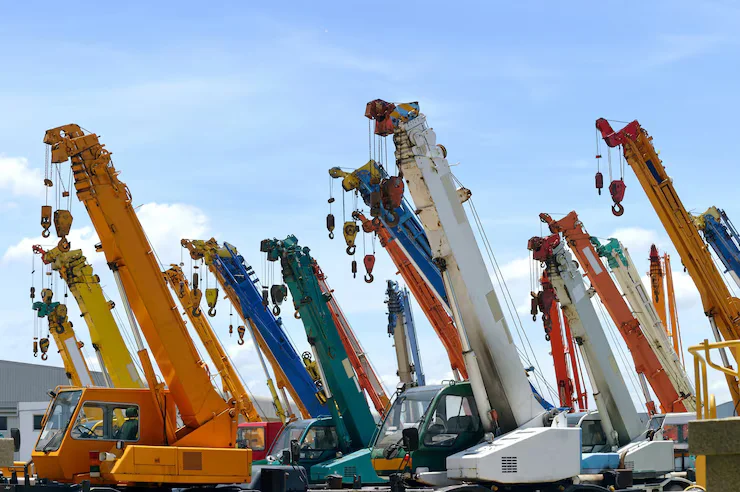Major construction projects demand the best in terms of equipment, expertise, and planning to ensure efficient, safe, and successful completion. One of the most critical pieces of equipment on such sites is the crane, which facilitates the lifting, moving, and placing of heavy materials. Understanding the essentials of crane hire is crucial for any construction manager or company looking to execute large-scale operations.
Assessing Project Requirements
Before engaging in crane hire, it is important to thoroughly assess the specific needs of your construction project. This includes calculating the maximum weight of the loads to be lifted, understanding the site’s terrain, and determining the accessibility for delivering and operating the crane. Each project will have unique demands that influence the type of crane required.
Cranes come in various types and capacities, from tower cranes that are perfect for high-rise constructions to mobile cranes that provide flexibility and ease of movement. Matching the crane to the project’s specifications is a step that cannot be overlooked.
Choosing the Right Crane Hire Service
Selecting a reputable crane hire service is as vital as choosing the right type of crane. A reliable provider will offer not just the equipment but also the expertise in operations and safety. Investigate their history of service, safety records, and the availability of trained operators and riggers.
Moreover, look for a service that offers a well-maintained fleet. Regular maintenance is imperative to ensure the equipment operates efficiently and reduces the risk of breakdowns that can result in costly project delays.
The Importance of Operator Expertise
Expert crane operators are an asset to any construction project. Experienced operators bring a level of precision and safety to crane operations that cannot be substituted. When hiring a crane, ensure that the service includes certified professionals who know how to handle the specific model of crane you are renting.
Additionally, a skilled operator is able to adapt to the project’s changing conditions and can effectively communicate with other team members to maintain safety and efficiency on-site.
Understanding the Costs
Cost considerations for crane hire extend beyond the initial rental fee. Factor in the costs associated with transport, setup, operation, and dismantling of the crane. Also, consider the expense of any additional permits or insurance necessary for large-scale equipment use on your construction site.
It’s prudent to request a comprehensive quote that details all foreseeable expenses to avoid unexpected costs cropping up during the course of your project.
Aligning with Health and Safety Regulations
Health and safety are of utmost importance when operating heavy machinery such as cranes. The crane hire service must comply with all relevant health and safety regulations and work with you to ensure that all safety protocols are followed onsite.
This includes conducting risk assessments, implementing logistic plans for crane operation, and arranging for regular safety checks and inspections. Non-compliance can lead to serious legal repercussions and endanger lives and property.
Planning for Logistics and Timing
The logistics of crane operation involve intricate planning. This includes the coordination of delivery and set-up times with the overall project schedule. Delays in crane availability can have a domino effect on the project timeline, therefore, confirming availability for the dates required is essential.
Additionally, the hired crane must be able to manage its intended tasks without causing disruptions to the surrounding environment or to the flow of the construction site.
Communication and Coordination
Stellar communication between your team and the crane hire service provider is key. This involves regular updates on project progress, sharing any alterations in the load requirements, and ensuring any issues with the crane are promptly addressed.
The willingness of the crane hire service to work closely with your management and site teams can make a significant difference to the seamless execution of eration.
Emergency Response and Contingency Planning
Unforeseen circumstances can arise during any major construction project. Having a contingency plan for crane operations is crucial. This includes understanding the crane hire service’s policies on breakdowns, emergency repairs, and availability of spare parts or alternative equipment.
Ensure that there are agreed-upon protocols for managing emergencies, including who to contact and what steps will be taken to minimise downtime.
Maintaining Onsite Efficiency
Once the crane hire is underway, maintaining efficiency onsite involves careful scheduling of crane operations. This ensures that the crane is used optimally, without idle time that could incur unnecessary costs.
Synchronising crane lifts with other construction activities helps to optimise the workflow and ultimately contributes to the project’s timeliness and profitability.
Investing in Training and Development
Investing in the ongoing training of your team, including those involved in crane operations, is an often-overlooked aspect of crane hire. Regular training ensures that everyone is up-to-date with the latest safety protocols, lifting techniques, and legal requirements.
It also emphasises the importance of safety and efficiency in your company culture, leading to better overall performance on your construction project.
Maximising the Benefits of Crane Hire
To maximise the benefits of crane hire, careful planning and proactive management are imperative. From choosing the right equipment and provider to maintaining effective communication and safety practices, each aspect plays a critical role in the success of major construction projects.
Engaging in comprehensive crane hire services can lead to significant operational efficiencies, safety improvements, and financial savings, thereby ensuring your project is completed on time and within budget.
In conclusion, crane hire is a pivotal component in the realm of construction, demanding attention to detail and thorough preparation. By adhering to these essentials, companies can look forward to the successful execution of their major construction projects.







